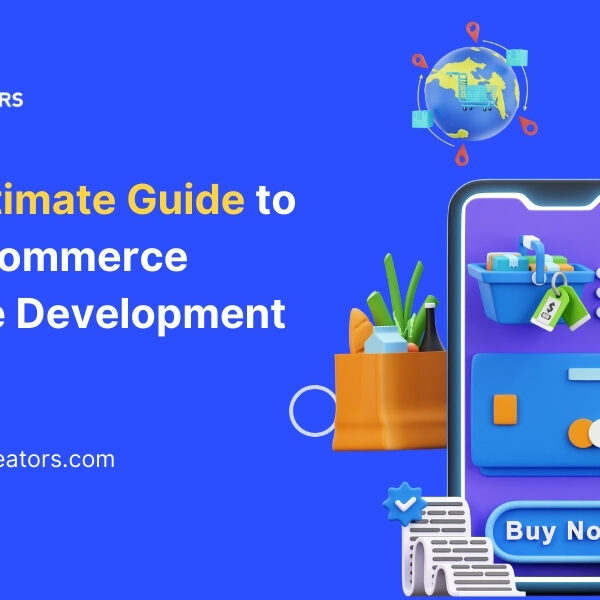Having a well-crafted website is essential for small businesses to grow and succeed. Whether you run a local shop, offer services, or manage a startup, being online can significantly boost your visibility and help you engage with customers more effectively. Thanks to the wide range of tools available, web development isn’t just for tech experts anymore—it’s within reach for business owners of all backgrounds.
This guide will take you through the key steps of building a website for your small business, from setting clear objectives and picking the right platform to improving SEO and creating a smooth user experience. By the time you finish, you’ll have the know-how to build a professional site that not only looks great but also turns visitors into loyal customers.
Table of Contents
Why Small Businesses Need a Website?
Web development for small businesses offers multiple advantages. A professional website provides a central hub for customers to find essential business information, make purchases, and contact the company. Without a site, businesses risk losing potential customers to competitors that are easier to find online.
Moreover, websites enhance credibility and provide a platform for customer engagement. With proper SEO and integration with tools like Google Analytics, small business websites can drive traffic and conversions effectively.
Key Features of Web Development for Small Businesses
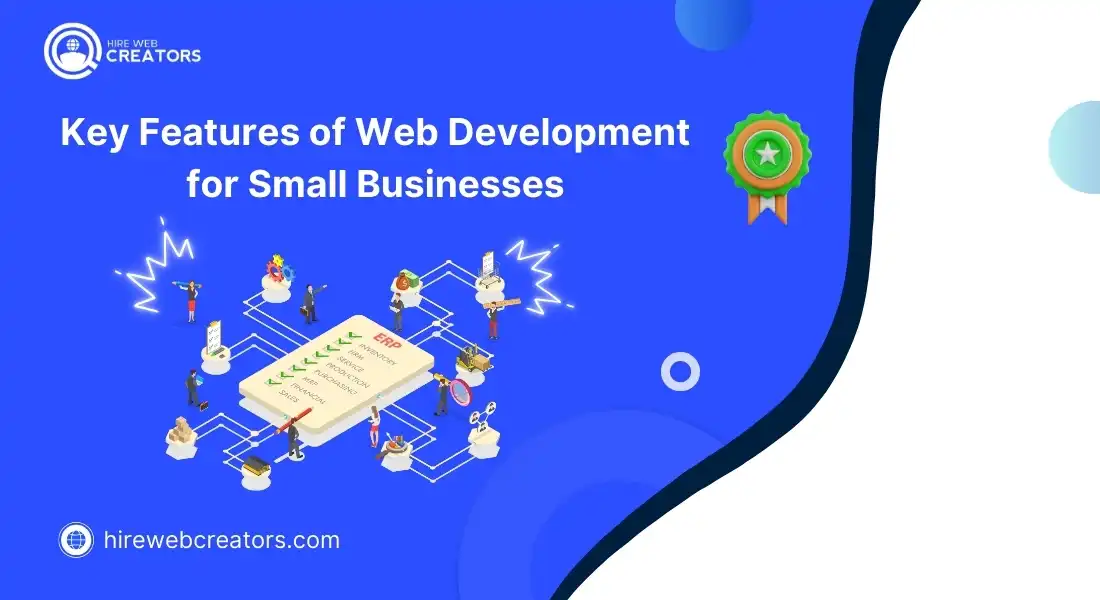
A small business website should include:
- Responsive design: Ensures the site works on desktops, tablets, and smartphones.
- SEO optimization: Helps the site rank well on search engines, boosting visibility.
- E-commerce functionality: If relevant, include online store features like product listings and checkout options.
- Contact forms and calls to action: Simplifies customer engagement.
- Security: SSL certificates and GDPR compliance build trust.
Platforms like Wix, Squarespace, and WordPress allow businesses to create custom sites without extensive technical expertise. These tools provide templates optimized for SEO and mobile performance, essential for a small business’s success in today’s market.
Best Platforms for Web Development for Small Businesses
Choosing the right platform depends on the business’s needs:
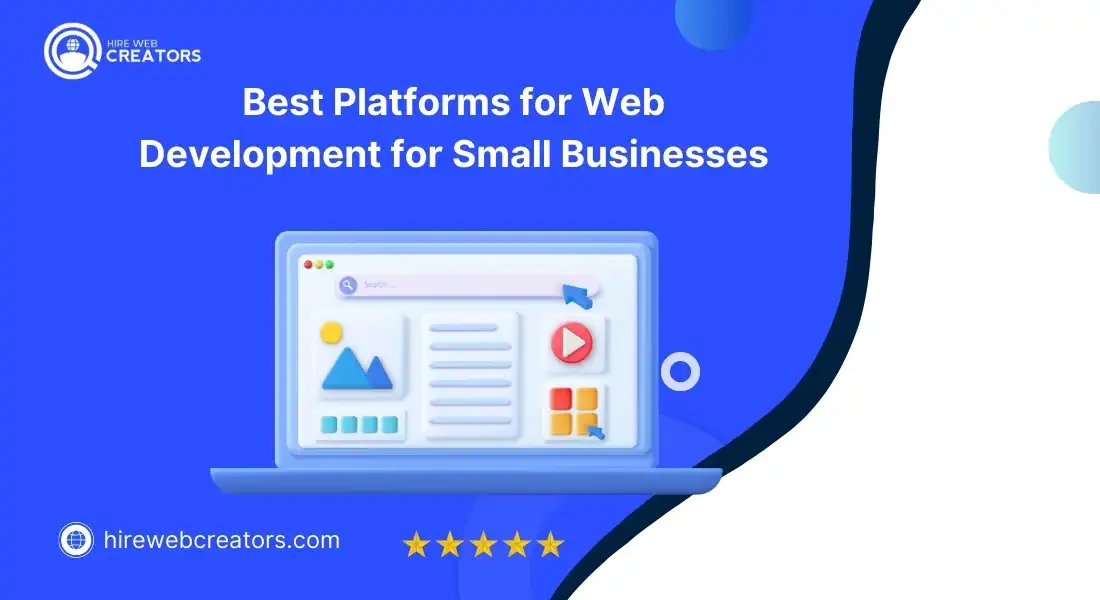
- Wix
- Offers drag-and-drop functionality and over 800 customizable templates.
- Ideal for beginners with no coding experience.
- Built-in SEO tools and integrations support business growth but require premium plans for e-commerce features.
- Squarespace
- Known for visually appealing templates, it is perfect for creative businesses.
- Offers e-commerce options but lacks a free plan beyond trials.
- Shopify
- Tailored for businesses focused on e-commerce, with tools like abandoned cart recovery.
- Scalable but may be costly for small businesses just starting.
- WordPress
- Open-source CMS that offers unlimited customization options through plugins and themes.
- Best for those comfortable with more technical setups and looking for flexibility.
These platforms streamline web development for small businesses by offering templates, e-commerce integration, and marketing tools, though some may require upgrades for advanced features.
Costs and Considerations for Web Development for Small Businesses
The cost of building a website varies based on the platform and features. While platforms like Wix offer free plans with limitations (e.g., no custom domain), others, such as Squarespace, only provide trials before requiring a subscription. Shopify offers tiered plans starting at $29 per month but provides e-commerce tools that justify the investment for businesses with complex product needs.
Small businesses should consider both the immediate and long-term costs, including hosting fees, domain registration, and potential plugin or marketing tool subscriptions.
How to Build a Website for Your Small Business: A Step-by-Step Guide
1. Define Your Business Goals and Website Needs
Building a professional website is crucial for businesses today, especially for those aiming to thrive in the digital space. Web development for small businesses involves aligning your website’s structure with specific goals, such as selling products, showcasing services, or generating leads. Whether you need an online store or a portfolio to display your work, defining your goals helps in making informed choices that meet both business and customer expectations. For effective web development for small businesses, selecting the right features and functions will streamline customer interaction and boost online visibility. Below are key considerations for determining your business needs.
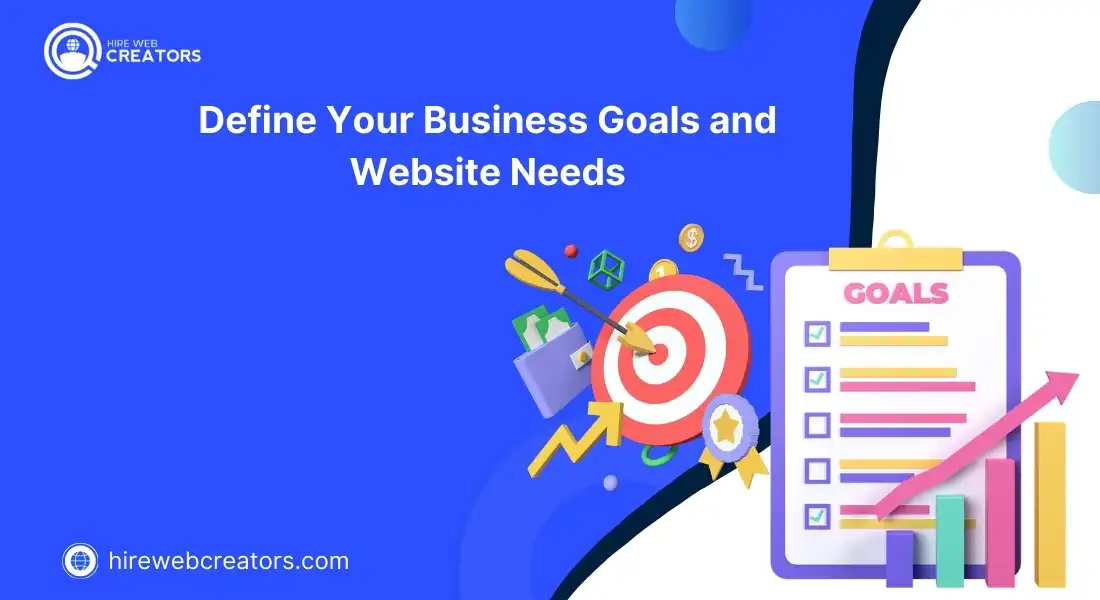
Primary Purpose of Your Website:
- E-commerce: Selling products online (e.g., Shopify, WooCommerce)
- Service Showcase: Highlighting consulting, healthcare, or other services
- Lead Generation: Capturing customer data through contact forms
- Content Hub or Blog: Sharing articles and tutorials
- Portfolio: Displaying creative work (e.g., photography, art, design)
Identify Features You Need:
- E-commerce: Product listings, payment gateways, inventory tracking
- Service Business: Online booking, contact forms, interactive maps
- Blogs: SEO tools, categories, and comment sections
- Portfolio: Customizable templates, image galleries, social media links
Example: Shopify is ideal for e-commerce, while WordPress offers more flexibility for content-heavy websites.
2. Choose the Right Website Platform
Choosing the right platform is essential when it comes to web development for small businesses, as it ensures the website aligns with your goals. Whether you need a platform that supports drag-and-drop design or advanced customization, the right choice can make development easier and more effective. Platforms such as Wix and Squarespace simplify the process of web development for small businesses, while Shopify and WordPress cater to those with specific needs like e-commerce or blogging. Below is a comparison of popular platforms to help you choose the one that fits your needs.
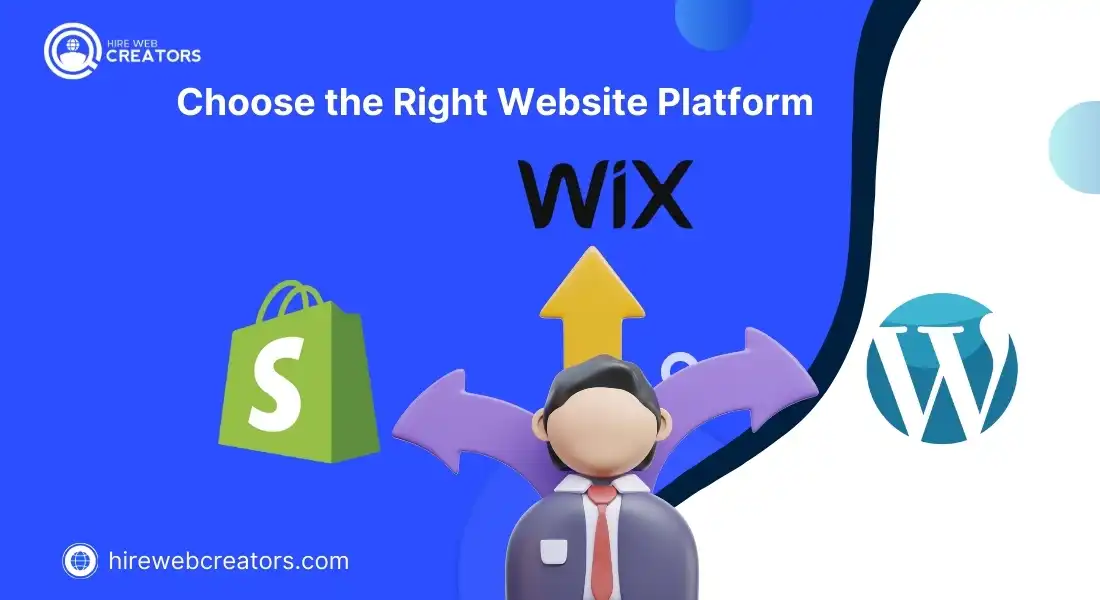
Recommended Platforms Based on Needs:
- Wix:
- Beginner-friendly with drag-and-drop functionality
- Hundreds of customizable templates
- Best for: Small businesses, portfolios, personal websites
- Squarespace:
- Visually stunning templates for creative professionals
- Integrated blogging and e-commerce tools
- Best for: Photographers, designers, artists
- Shopify:
- Built specifically for e-commerce with powerful tools
- Supports multiple payment gateways and shipping options
- Best for: Online stores and dropshipping businesses
- WordPress (Self-hosted):
- High flexibility with thousands of themes and plugins
- Requires separate hosting but offers advanced customization
- Best for Blogs, content-heavy websites, and businesses needing scalability
3. Register a Domain Name and Hosting Plan
An important step in web development for small businesses is securing the right domain name and hosting plan. A domain name is your business’s digital identity, making it easy for customers to find you online. In addition to choosing a memorable domain, you need to select reliable hosting to ensure your website performs well. Platforms like Shopify and Wix offer built-in hosting, but if you’re using WordPress, you’ll need to arrange separate hosting. This stage of web development for small businesses ensures that your site is accessible and professional.
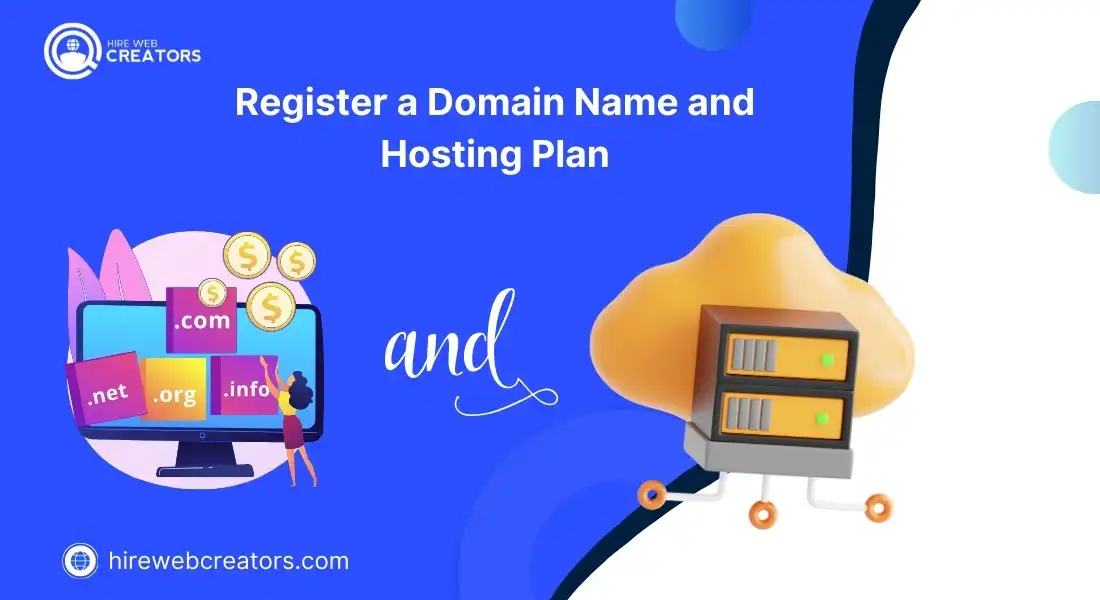
Choosing a Memorable Domain Name:
- Keep it short, relevant, and easy to remember.
- Use keywords when possible (e.g.,
www.webdevsmallbusiness.com). - Avoid special characters and numbers to prevent confusion.
Hosting Plans:
- Built-in Hosting Platforms: Shopify, Squarespace, Wix
- WordPress Hosting Providers: Bluehost, Hostinger, SiteGround
- Shared Hosting: Affordable and suitable for small websites
- VPS Hosting: More control and better performance
- Managed Hosting: Optimized specifically for WordPress
Design Your Website with Templates and Customization
Design plays a critical role in web development for small businesses. Using pre-built templates can save time, while customization ensures your website aligns with your brand identity. A well-designed site creates a positive first impression, builds trust, and encourages customer engagement. Whether you choose a drag-and-drop builder like Wix or an advanced platform like WordPress, ensure your design is responsive across all devices to maximize reach and functionality. Successful web development for small businesses involves balancing aesthetics with usability to create a seamless experience.
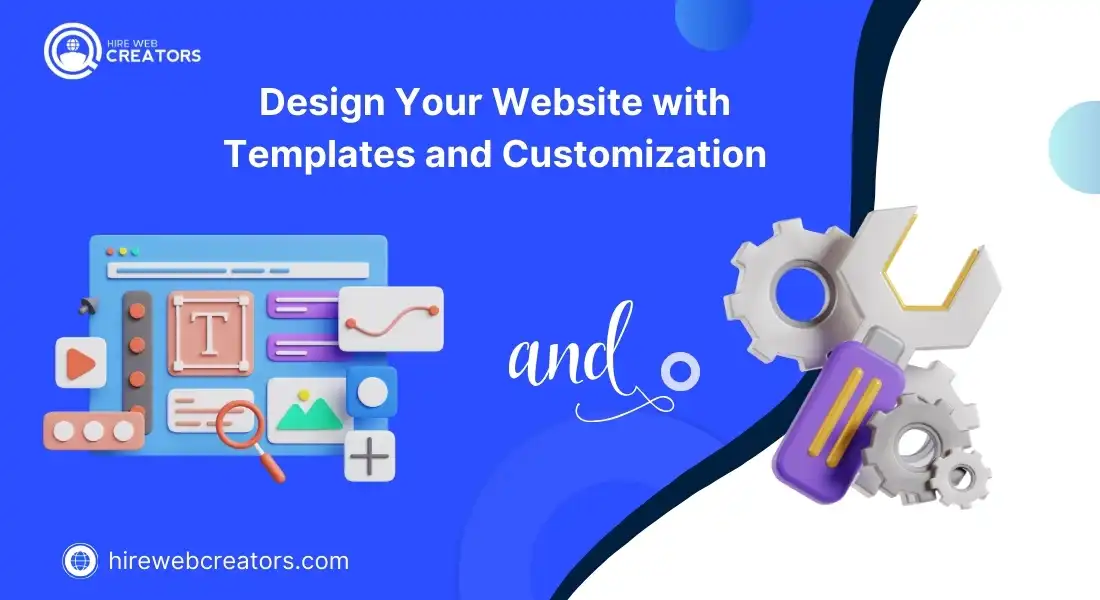
Select and Customize a Template:
- Reflect your brand through consistent use of fonts, colors, and imagery.
- Add your logo and create high-quality content.
- Use clear CTAs to guide visitors toward desired actions.
Ensure a Responsive Design:
- Test the layout across devices like desktops, tablets, and smartphones.
- Adjust elements like font sizes and buttons for mobile users.
- Ensure fast load times with optimized images.
5. Develop Key Pages for Your Website
A strong foundation in web development for small businesses involves building essential pages that provide users with the information they need. Your homepage, about page, product or service pages, and contact page are crucial for creating a seamless customer experience. These pages not only engage users but also help establish credibility and trust. Additionally, including a privacy policy and terms of service ensures compliance with online regulations, an important part of web development for small businesses.
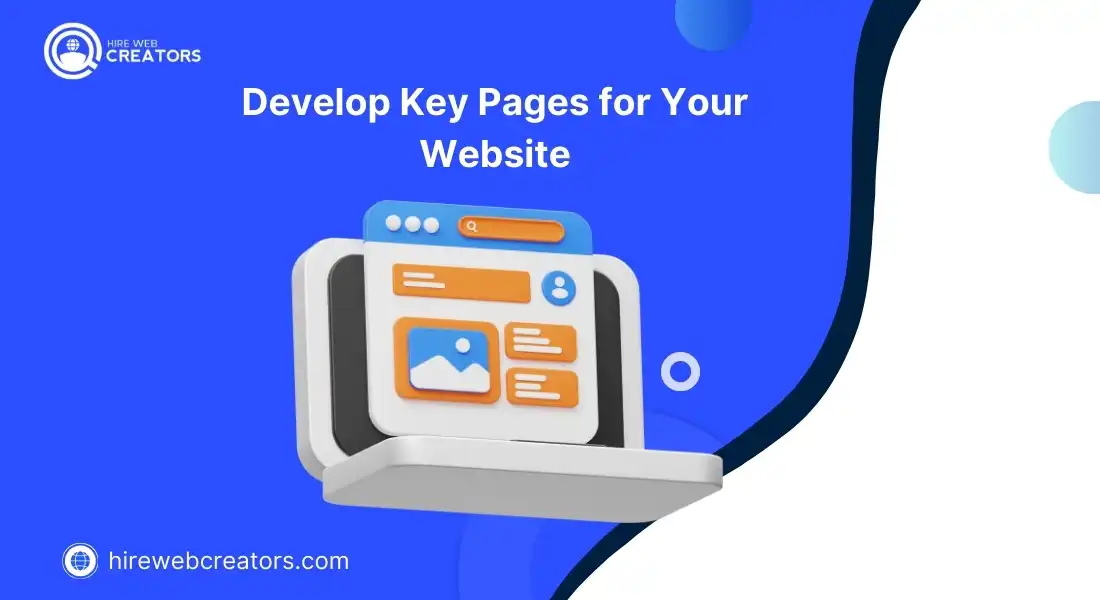
Essential Pages to Include:
- Homepage:
- Introduce your brand and key offerings.
- Use compelling CTAs to encourage further engagement.
- About Page:
- Share your business story, mission, and values.
- Build credibility with team introductions and awards.
- Product/Service Pages:
- Provide detailed descriptions, pricing, and images.
- Include customer reviews and testimonials for trust-building.
- Contact Page:
- Include contact forms, phone numbers, and live chat options.
- Add a map for physical locations if applicable.
- Privacy Policy & Terms:
- Ensure compliance with regulations like GDPR and CCPA.
- Explain your data collection practices.
6. Add E-commerce and Marketing Features
Integrating the right tools is essential for small businesses’ web development if you plan to sell products or services online. From payment gateways to SEO tools, using the right features enhances functionality and improves the customer experience. Platforms like Shopify come with built-in marketing tools, while WordPress requires plugins for advanced customization. Adding abandoned cart recovery and SEO optimization are essential elements of web development for small businesses looking to grow their audience and boost sales.
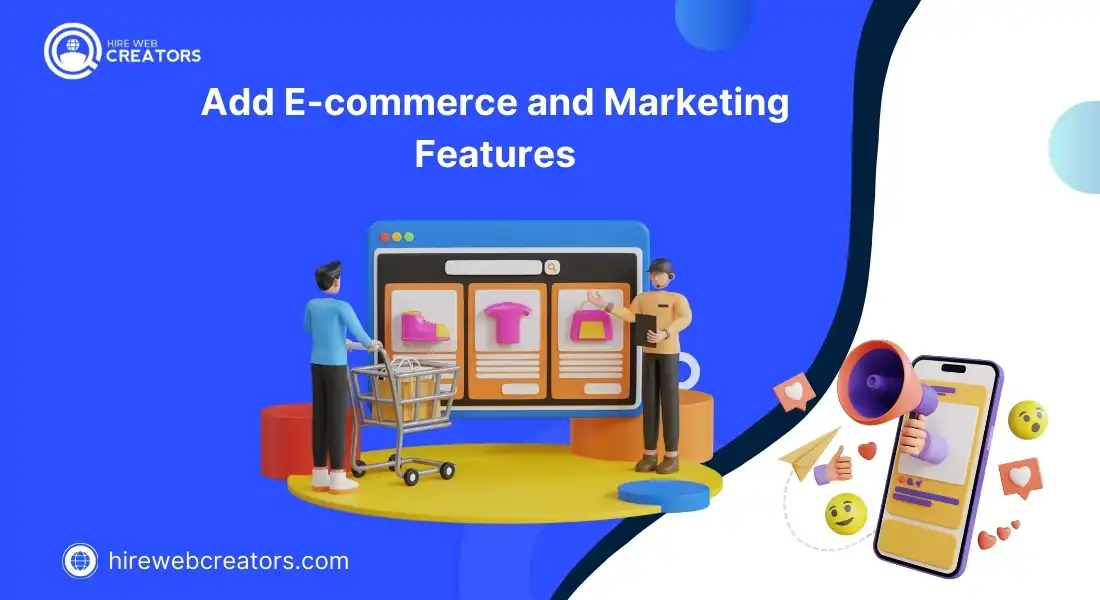
E-commerce Essentials:
- Payment Gateways: PayPal, Stripe, Shopify Payments
- Abandoned Cart Recovery: Automate emails to recover lost sales.
SEO Tools:
- Yoast SEO: Optimize WordPress content for search engines.
- Wix SEO Wiz: Step-by-step SEO guidance.
- Use keywords naturally across your site.
7. Optimize for SEO and Performance
SEO and performance are key factors in web development for small businesses. A fast, well-optimized site ranks better in search engines and provides a smoother user experience. Regularly updating your content with relevant keywords helps maintain visibility. Additionally, ensuring your site is mobile-friendly improves engagement as more users browse on smartphones. Effective web development for small businesses involves balancing content optimization with technical performance.
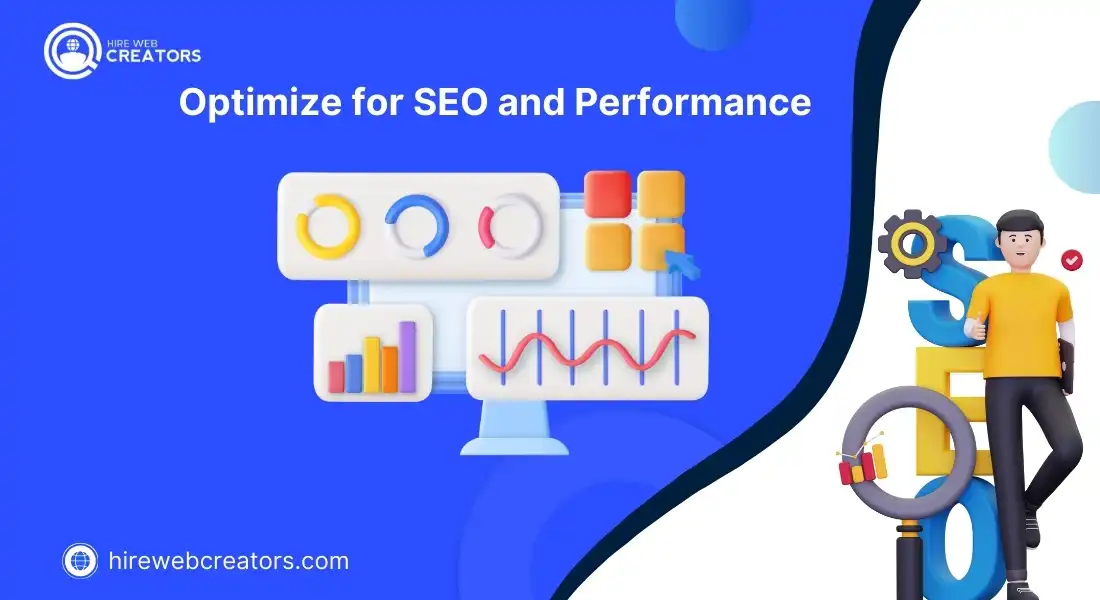
SEO Best Practices:
- Integrate primary keywords across pages.
- Optimize meta descriptions, URLs, and image alt text.
Performance Optimization:
- Compress images with TinyPNG.
- Use lazy loading to improve load times.
- Implement a CDN for faster content delivery.
8. Test Your Website Before Launch
Thorough testing ensures smooth functionality, a critical part of web development for small businesses. Testing across browsers and devices helps identify potential issues and ensure a consistent experience. Getting feedback from real users provides valuable insights to improve usability. Before launch, it’s important to fix any broken links, design inconsistencies, or technical issues that could affect performance.
9. Launch and Promote Your Website
Once your site is ready, launch it by connecting your domain and hosting or publishing via your website builder. Promoting your website through social media, Google Ads, and email campaigns is essential for driving traffic. Submitting your site to Google for indexing is a crucial step in web development for small businesses, ensuring your site appears in search results.
10. Monitor and Improve Your Website Continuously
Continuous improvement is essential in web development for small businesses. Use Google Analytics to track visitor behavior and SEO tools to monitor your site’s performance. Regularly update content to keep your site relevant and engaging.
How Can Web Development Solutions Integrate with Business Goals?
Any web development solution for small businesses should be knit within the overall business goals to make sure the website becomes an asset worth investing in. One of the leading ways web development can support business objectives is through lead generation. Small businesses can include forms, calls to action, and landing pages that capture user information and turn visitors into leads. The design and development of these elements have to be aligned with the business’s marketing strategy to drive customer acquisition and retention.
By the same token, branding consistency is important. A website should mirror the company’s brand identity, values, mission, and vision. It needs to ensure that web development for small businesses can allow the design of the site, color scheme, font, and general aesthetics to be consistent with the company’s branding guidelines. This would brand the website consistently to instill trust in customers, thereby building a stronger identity in the marketplace.
Web development also supports business goals through analytics and insights that drive decisions. A properly developed website would provide tools to track user behavior: how visitors interact with the site, which pages attract most of the attention, and drop-off points. For this reason, web development in small businesses should be integrated with Google Analytics or any other tracking software that could help a business owner understand his audience better.
What are the Common Web Development Mistakes that Small Businesses Should Avoid?
Web development for small businesses can be a complex process, and it’s easy to make mistakes that can hurt the effectiveness of the website. One common mistake is neglecting mobile optimization. With more consumers accessing websites via mobile devices, failing to ensure that a website is mobile-friendly can result in poor user experience and higher bounce rates. Web development for small businesses must prioritize responsive design that adapts to various screen sizes, ensuring that the site is accessible and functional for all users, regardless of the device they are using.
Another frequent mistake is overloading the website with unnecessary features or content. While it may be tempting to include a variety of elements, such as animations, videos, or excessive plugins, these can significantly slow down the site’s performance. A slow-loading website frustrates users and leads to lower search engine rankings. Web development for small businesses should focus on simplicity and functionality, ensuring that the site is easy to navigate, loads quickly, and provides a smooth user experience.
Ignoring SEO is another major mistake small businesses often make. Without proper search engine optimization, a website may struggle to attract organic traffic, limiting its visibility and reach. Web development for small businesses should include basic SEO practices, such as optimizing page titles, and meta descriptions, and using proper heading structures. Failure to implement these practices can prevent the website from ranking well on search engines, reducing the chances of potential customers finding the business online.
How much does it cost to build a website for a small business?
The cost of building a website varies widely depending on the complexity, platform and features you need.
- DIY Website Builders (like Wix or Squarespace): $0 to $300 per month, with options for free plans, though premium features require upgrades.
- WordPress Setup: Costs include domain registration ($10-$25/year) and hosting ($50-$100/year), with potential one-time expenses for premium themes or plugins.
- Hiring a Developer or Agency: A custom website can range from $3,000 to $10,000+ for a basic setup, with advanced eCommerce sites reaching $20,000 or more.
Is it worth making a website for a small business?
Yes, having a website is highly beneficial for small businesses. A website:
- Increases visibility by making your business discoverable online, especially since many consumers research products and services before making a purchase.
- Builds trust through customer testimonials, product reviews, and company information.
- Generates leads and sales by providing an online platform where customers can explore and purchase products or services directly.
How much does web hosting cost for a small business?
Web hosting prices vary based on the type of hosting service:
- Shared Hosting: $2 to $10 per month, suitable for small, less resource-intensive websites.
- Dedicated Hosting or VPS: $50 to $250 per month, ideal for high-traffic or resource-heavy websites.
- Many website builders include hosting in their subscription plans, such as Shopify or Wix, where hosting costs are bundled into monthly fees ranging from $10 to $300.
Which website platform is best for small businesses?
The best platform depends on your business needs:
- Wix: Ideal for beginners due to its drag-and-drop interface and flexibility.
- Squarespace: Best for creatives and service-based businesses that require visually stunning designs.
- Shopify: Excellent for small businesses focused on eCommerce, with powerful sales and inventory tools.
- WordPress: Offers extensive customization but requires more technical knowledge, making it suitable for businesses with more complex needs.
In conclusion, web development for small businesses is a critical component of building a strong online presence and driving business growth. From mobile responsiveness and SEO optimization to user-friendly design and security, the right web development solutions ensure that your business is equipped to compete in today’s digital landscape. A well-built website not only enhances credibility but also serves as a powerful tool for lead generation, customer engagement, and long-term scalability.
Small businesses and startups must carefully consider their web development strategies to ensure they align with their business goals, budget, and target audience. Whether leveraging affordable platforms, hiring specialized agencies, or integrating essential features, investing in professional web development is key to establishing a successful and sustainable online presence. By focusing on key elements like design, performance, and security, small businesses can create websites that deliver real value, attract customers, and contribute to ongoing success.


